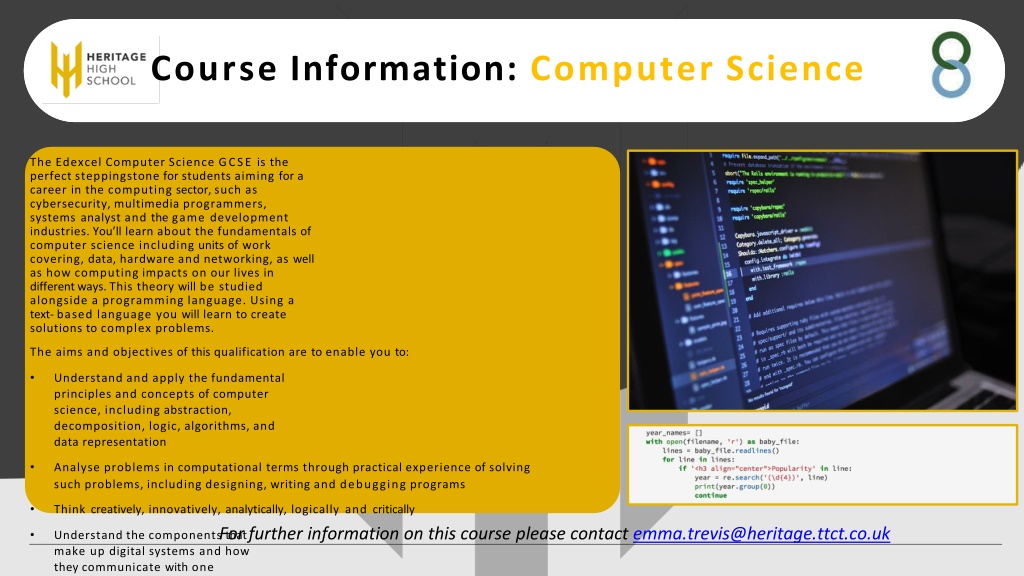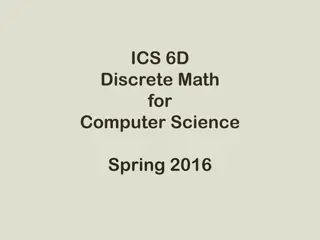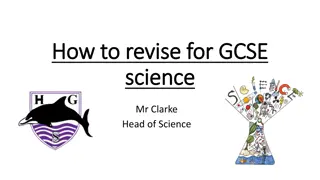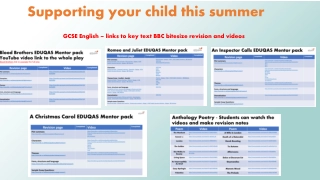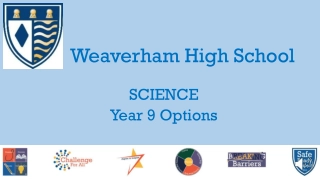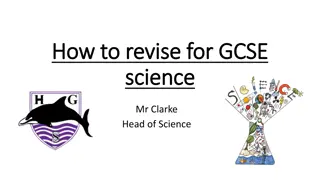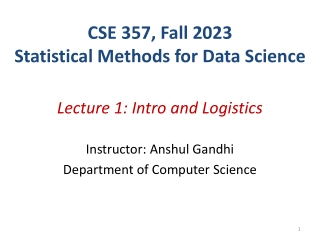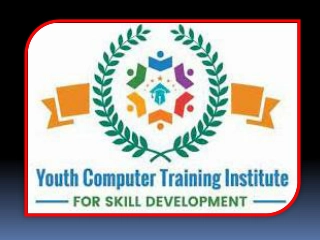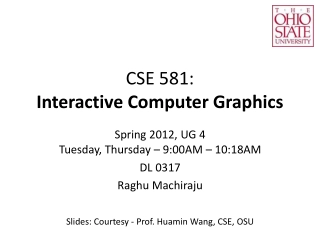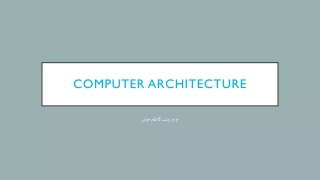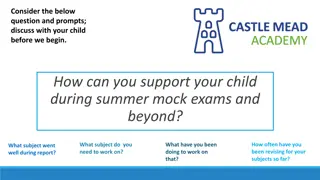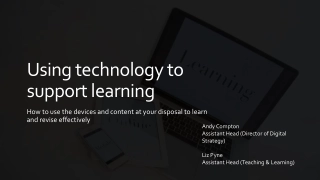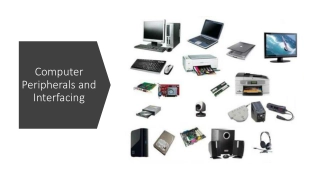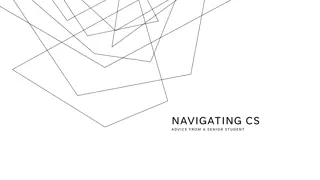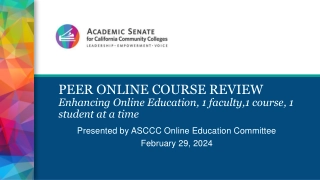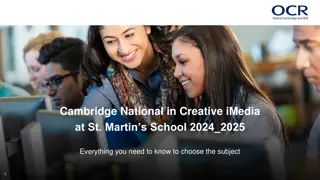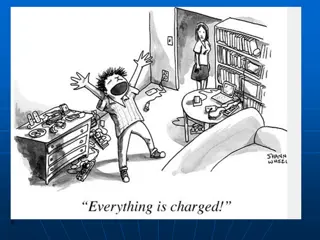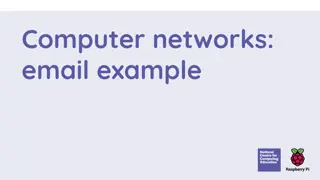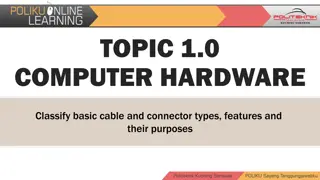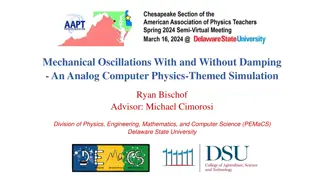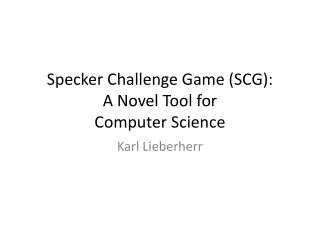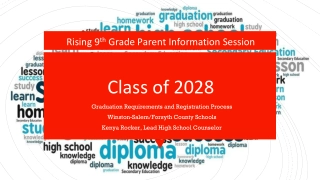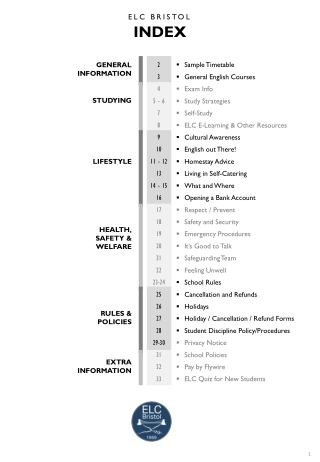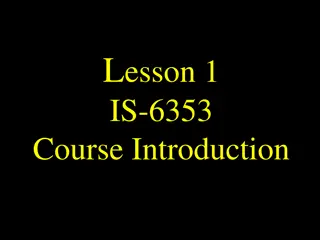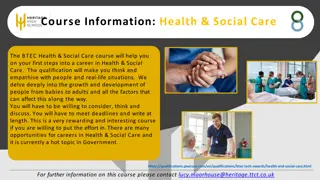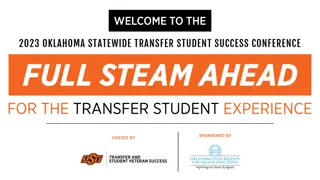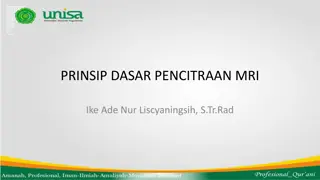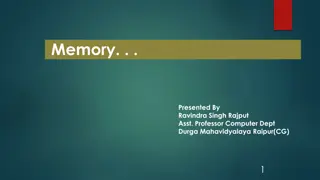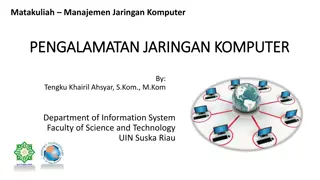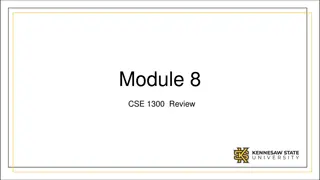Explore Edexcel Computer Science GCSE Course Information
The Edexcel Computer Science GCSE is an ideal pathway for students interested in a computing career, covering fundamental computer science principles, practical problem-solving using a programming language, and understanding digital systems. The course focuses on developing creativity, analytical thinking, and skills relevant to various computing industries. Assessment involves practical experience, including writing and debugging programs. Dos and Don'ts provide insights for prospective students, emphasizing the importance of genuine interest and dedication for success in the field. Potential career pathways include bioinformatics, IT support, software engineering, and more. Overall, the course equips students with technical knowledge, problem-solving skills, and opportunities for further education or apprenticeships.
Download Presentation
Please find below an Image/Link to download the presentation.
The content on the website is provided AS IS for your information and personal use only. It may not be sold, licensed, or shared on other websites without obtaining consent from the author. Download presentation by click this link. If you encounter any issues during the download, it is possible that the publisher has removed the file from their server.
Presentation Transcript
Course Information: Computer Science The Edexcel Computer Science GCSE is the perfect steppingstone for students aiming for a career in the computing sector, such as cybersecurity, multimedia programmers, systems analyst and the game development industries. You ll learn about the fundamentals of computer science including units of work covering, data, hardware and networking, as well as how computing impacts on our lives in different ways. This theory will be studied alongside a programming language. Using a text- based language you will learn to create solutions to complex problems. The aims and objectives of this qualification are to enable you to: Understand and apply the fundamental principles and concepts of computer science, including abstraction, decomposition, logic, algorithms, and data representation Analyse problems in computational terms through practical experience of solving such problems, including designing, writing and debugging programs Think creatively, innovatively, analytically, logically and critically For further information on this course please contact emma.trevis@heritage.ttct.co.uk Understand the components that make up digital systems and how they communicate with one another and with other systems
Assessment: Computer Science Click here to be taken to the Python IDE download page For further information on this course please contact emma.trevis@heritage.ttct.co.uk
Dos and Don'ts: Computer Science Do s Don ts Pick this course if you have a keen interest in Computing (not gaming!) and have enjoyed your lesson s in Y7 and Y8 Pick this course because you get on with the Teacher Don t pick this course just because you might have a group of friends that will be picking it Pick this course if you want to develop your creativity, problem solving, analysis and evaluation skills Pick this course if you aspire to working in the Computing industry Pick this course if you think you will be doing practical every lesson, the majority of the course is theory/controlled assessment Pick this course if you work well independently and you like to spending time solving problems Pick this course so you can dismantle and rebuild computers or make games we don t do this at all. Pick this course if you are willing to put in the effort, both in class and at home. Pick this course as you think it is easy There are NO easy courses! For further information on this course please contact SNewton2@heritage.derbyshire.sch.uk
Beyond Heritage: Computer Science Potential Career Pathways Bioinformatics Business analysis Computer aided design 3D modelling and animation Programming Computer games testing Cyber security IT consultant IT support Database administration Multimedia development IT project management Teaching Web development Systems developer Network manager Social media manager Software engineering Computer hardware engineering Life/Employability Skills Further Education/Apprenticeships Technical ability You will develop technical skills and specialist knowledge of how computers work. Problem solving The majority of Computing and IT roles require problem solving skills and creative thinking to recognise problems and their causes, to identify a range of possible solutions and then assess and decide the best way forward. Organisation You ll need to be able to prioritize work and meet strict deadlines while also achieving the course criteria Creativity You will develop your ability to problem solve through the creation of complex algorithms. Solutions will solve problems using efficient sets of instructions. Discipline You need to know and do what is expected of you. This ranges from organising yourself, being on time, to being responsible. Some jobs need particular discipline skills such as being able to persevere with the task and plans until you accomplish them. Mathematical Skills Complex mathematics will be used throughout units on problem solving and programming. You will learn to perform calculations using binary and to create complex expressions to calculate file size and data transfer rates. A Level/College Courses Including Level 3 BTEC and A level Computer Science and IT Courses in preparation and acceptance for University Degree Couse's or Apprenticeships. Apprenticeships could include computer engineering roles, working with artificial intelligence, communications, networking and Internet and media-based careers, software engineering and development Related subjects include IT, Media and Mathematics For further information on this course please contact emma.trevis@heritage.ttct.co.uk
